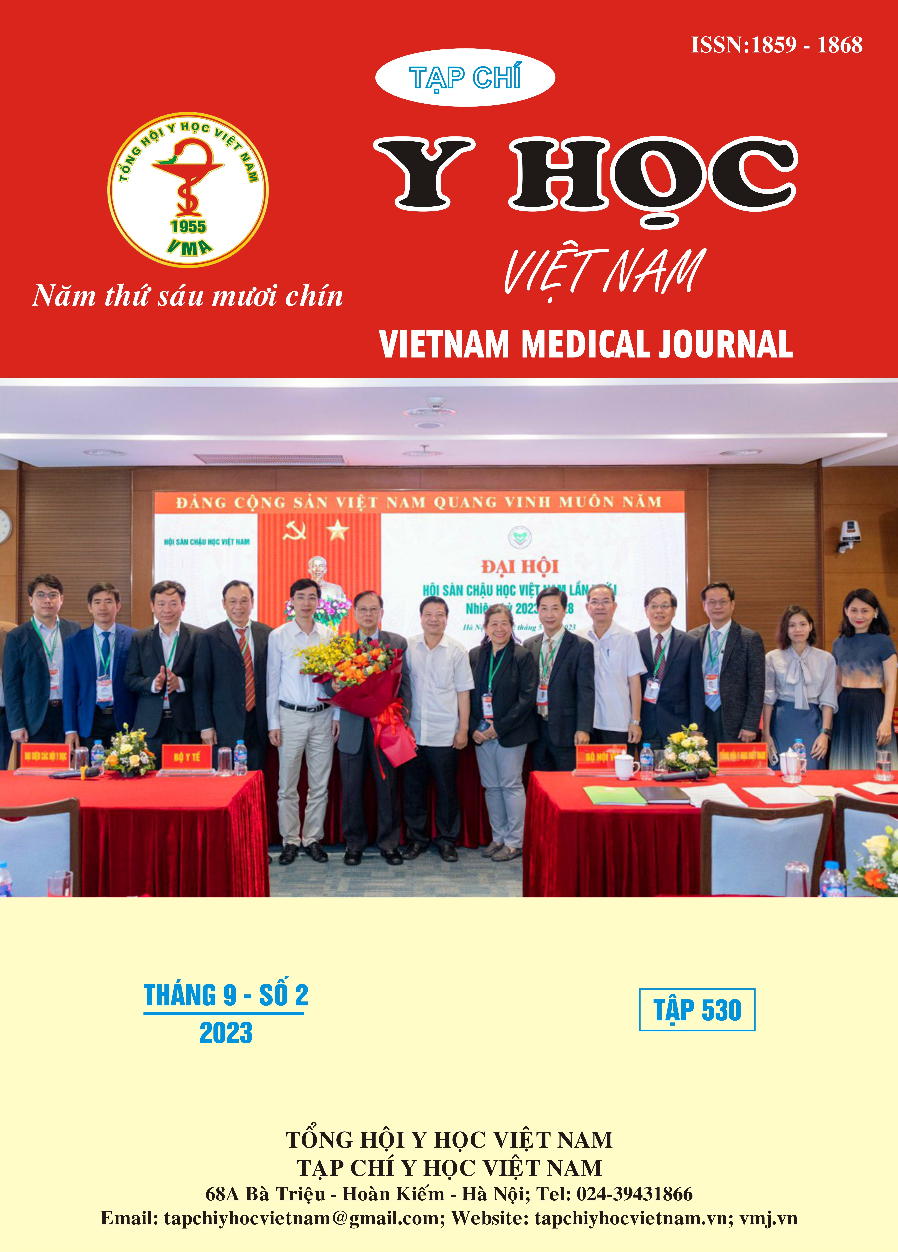INVESTIGATING THE RELATIONSHIP BETWEEN HIGH-LEVEL MICROSATELLITE INSTABILITY AND HISTOPATHOLOGICAL CHARACTERISTICS IN GASTRIC CANCER BY IMMUNOHISTOCHEMISTRY
Main Article Content
Abstract
Objective: to investigate the prevalence of microsatellite instability (MSI) in patients with gastric carcinoma and its correlation with certain histopathological features. Subjects and methods: a retrospective and cross-sectional study was conducted on 87 gastric carcinoma patients at 103 Military Hospital from January 2020 to March 2023. Immunohistochemical staining with PMS2, MLH1, MSH2, and MSH6 immune markers was used to evaluate MSI. The obtained data were analyzed to assess the relationship between the different indicators. Results: 16.09% of the patients had MSI, with 13.79% of those exhibiting high-level MSI (MSI-H) and a loss of simultaneous expression of two immune markers (MLH1-PMS2) or all four immune markers. Additionally, 2.3% of the patients had low-level MSI (MSI-L) with a phenotype that only lost expression of the PMS2 marker. Statistical analysis demonstrated a significant association (p<0.05) between MSI-H and patients with Lauren intestinal type, moderate differentiation, invasion to the serosal fibrous connective tissue (pT3), high-grade Tumor-infiltrating lymphocytes, and tumor necrosis.
Article Details
Keywords
gastric carcinoma, microsatellite instability.
References
2. Cancer Genome Atlas Research Network. (2014). Comprehensive molecular characterization of gastric adenocarcinoma. Nature, 513(7517), 202.
3. Pietrantonio, F., Miceli, R., Raimondi, A., et al. (2019). Individual patient data meta-analysis of the value of microsatellite instability as a biomarker in gastric cancer. Journal of Clinical Oncology, 37(35), 3392-3400.
4. Kohlruss, M., Ott, K., Grosser, B., et al (2021). Sexual difference matters: females with high microsatellite instability show increased survival after neoadjuvant chemotherapy in gastric cancer. Cancers, 13(5), 1048.
5. Hạnh, N. T. M., Phương, N. T. M., & Dũng, T. T. (2021). Bộc lộ Protein sửa chữa ghép cặp sai ADN ở bệnh nhân ung thư dạ dày điều trị hóa chất bổ trợ phác đồ XELOX. Tạp chí Nghiên cứu Y học, 137(1), 93-100.
6. Sugimoto, R., Endo, M., Osakabe, M., et al (2021). Immunohistochemical analysis of mismatch repair gene proteins in early gastric cancer based on microsatellite status. Digestion, 102(5), 691-700.
7. Jahng, J., Youn, Y. H., Kim, K. H., et al (2012). Endoscopic and clinicopathologic characteristics of early gastric cancer with high microsatellite instability. World Journal of Gastroenterology: WJG, 18(27), 3571.
8. Quaas, A., Biesma, H. D., Wagner, A. D., et al. (2022). Microsatellite instability and sex differences in resectable gastric cancer–A pooled analysis of three European cohorts. European Journal of Cancer, 173, 95-104.


